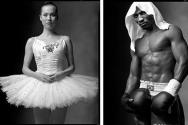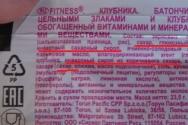The image and characterization of Napoleon in the novel “War and Peace” by Leo Tolstoy (for an essay on Literature). The image and characteristics of Napoleon in Tolstoy's novel War and Peace essay The meaning of Napoleon in the novel War and Peace
In the four-volume novel by L.N. Tolstoy depicts many people, both fictional heroes and real historical characters. Napoleon is one of them and one of the few who is present in the novel literally from the first and almost to the last page.
Moreover, for Tolstoy Napoleon is not easy historical figure, a commander who marched troops against Russia and was defeated here. The writer is interested in him both as a person, endowed with his own human qualities, advantages and disadvantages, and as the embodiment of individualism, a person who is confident that he is above everyone and everything is allowed to him, and as a figure with whom the novelist connects the most complex moral issues.
The disclosure of this image is important both for the perception of the entire novel as a whole and a number of the main characters: Andrei Bolkonsky, Pierre Bezukhov, Kutuzov, Alexander I, and for understanding philosophical views the author himself. The image of Napoleon - not a great man and commander, but a conqueror and enslaver allowed Tolstoy to give his own picture of the vision in the novel real forces stories and roles of prominent personalities.
The novel contains a number of episodes that speak of Napoleon's undoubted military leadership experience and talent. Throughout the entire Aus-Terlitz campaign, he is shown as a commander who is well versed in the combat situation and who was not spared by military successes. He quickly understood both the tactical plan of Kutuzov, who proposed a truce near Gollabrun, and the unfortunate mistake of Murat, who agreed to begin peace negotiations. Before Austerlitz, Napoleon outwitted the Russian envoy Dolgorukov, instilling in him the false idea of his fear of a general battle in order to lull the enemy’s vigilance and bring his troops as close to him as possible, which then ensured victory in the battle.
When describing the crossing of the French across the Neman, Tolstoy will mention that Napoleon was tired of applause when he devoted himself to military concerns. In the picture of the Battle of Borodino, which illustrates Tolstoy's philosophical thesis about the impossibility of the commander-in-chief keeping up with his orders with the rapidly changing situation during the battle, Napoleon reveals knowledge of the intricacies of the combat situation. He takes into account the vulnerability of the defense of the left wing of the Russian position. After Murat’s request for reinforcements, Napoleon thought: “Why are they asking for reinforcements when they have half the army in their hands, aimed at the weak, unfortified wing of the Russians.”
When describing the Battle of Borodino, Tolstoy twice talks about Napoleon’s many years of experience as a commander. It was experience that helped Napoleon understand the difficulty and results of the Battle of Borodino: “Napoleon, after his long experience of war, knew well what it meant for eight hours, after all the efforts made, for the attacker to not win a battle.” Elsewhere, the author again talks about the military erudition of the commander , who “with great tact and war experience calmly and joyfully performed his role...”.
And it is not surprising that in 1805, at the height of Napoleon’s rise and victories, twenty-year-old Pierre rushes to the defense of the French emperor, when in the Scherer salon he is called a usurper, antichrist, upstart, murderer and villain, and Andrei Bolkonsky speaks of the unsurpassed greatness of Napoleon.
But Tolstoy does not want to show in the novel the life of one person or a group of people, he strives to embody in it the thought of the people. Therefore, Napoleon is ridiculous in his belief that he controls the battles and the course of history; and Kutuzov’s strength lies in the fact that he relies on the spontaneously expressed popular will and takes into account the mood of the people.
And in general, in the first two volumes the writer prefers that the reader see Napoleon not through Tolstoy’s eyes, but through the eyes of the heroes of the novel. A triangular hat and a gray traveling frock coat, a bold and straight gait - this is how Prince Andrei and Pierre imagine him, this is how defeated Europe knew him. At first glance, Tolstoy’s story is also like this: “The troops knew about the presence of the emperor, searched for him with gases, and when they found a figure in a frock coat and hat separated from his retinue on the mountain in front of the tent, they threw their hats up and shouted: “Vivat! On the faces of these people there was one common expression of joy at the beginning of the long-awaited campaign and delight and devotion to the man in a gray frock coat standing on the mountain.”
Such is Tolstoy's Napoleon on the day when he ordered his troops to cross the Neman River, thereby starting a war with Russia. But soon it will become different, because for the writer this image is, first of all, the embodiment of war, and war is “an event contrary to human reason and human nature.”
In the third volume, Tolstoy no longer hides his hatred of Napoleon, he will give free rein to sarcasm, and will angrily mock the man whom thousands of people adored. Why does Tolstoy hate Napoleon so much?
“For him it was not a new conviction that his presence at all ends of the world, from Africa to the steppes of Muscovy, equally amazes and plunges people into the madness of self-forgetfulness... About forty lancers drowned in the river... Most washed back to this shore ... But as soon as they got out... they shouted: “Vivat!”, looking enthusiastically at the place where Napoleon stood, but where he was no longer there, and at that moment they considered themselves happy.”
Tolstoy does not like all this, moreover, it outrages him. Napoleon is indifferent when he sees people dying senselessly in the river out of sheer devotion to him. Napoleon admits the idea that he is almost a deity, that he can and must decide the destinies of other people, doom them to death, make them happy or unhappy... Tolstoy knows: such an understanding of power leads to crime, brings evil. Therefore, as a writer, he sets himself the task of debunking Napoleon, destroying the legend of his extraordinary nature.
For the first time we see Napoleon on the banks of the Neman. The second time is in the house where Alexander I lived four days ago. Napoleon receives the envoy of the Russian Tsar. Tolstoy describes Napoleon without the slightest distortion, but emphasizing the details: “He was in a blue uniform, open over a white vest that went down to his round stomach, in white leggings that hugged the fat thighs of his short legs, and in boots... His entire plump, short figure with broad, thick shoulders and an involuntarily protruding belly and chest, she had that representative, dignified appearance that forty-year-old people living in the hall always have.”
Everything is true. And a round belly, and short legs, and thick shoulders. Tolstoy speaks several times about “the trembling of the calf in Napoleon’s left leg,” and again and again reminds him of his bulk and short figure. Tolstoy doesn’t want to see anything unusual. A man, like everyone else, has grown fat in due time; just a person who allowed himself to believe that he is not like other people. And from this follows another property that Tolstoy hated - unnaturalness.
In the portrait of Napoleon, who came out to meet the envoy of the Russian Tsar, his tendency to “do himself” is persistently emphasized: he had just combed his hair, but “one strand of hair went down over the middle of his broad forehead” - this was Napoleon’s hairstyle, known to the whole world, it was imitated, it is needed was to save. Even the fact that he smelled of cologne angers Tolstoy, because it means that Napoleon is very busy with himself and the impression he makes on others: “It was clear that for a long time for Napoleon there was no possibility of mistakes in his conviction and that in his concept, everything he did was good, not because it coincided with the idea of what is good and bad, but because he did it.”
This is Tolstoy's Napoleon. Not majestic, but absurd in his conviction that history moves by his will, that all people should pray to him. Tolstoy showed how Napoleon was idolized, and how he himself always wanted to seem like a great man. All his gestures are designed to invite Special attention. He is constantly acting. He gives the signal to start the Battle of Austerlitz with a glove taken off his hand. In Tilsit, in front of the guard of honor, he tears off the glove from his hand and throws it on the ground, knowing that this will be noticed. And on the eve of the Battle of Borodino, receiving a courtier who had arrived from Paris, he performed a small performance in front of a portrait of his son. In a word, Tolstoy constantly shows in Napoleon an open desire for glory and how he constantly plays the role of a great man.
The image of Napoleon allows Tolstoy to pose the question: can greatness and glory be taken for life ideal? And the writer, as we see, gives a negative answer to it. As Tolstoy writes, “the exposed rulers of the world cannot oppose the Napoleonic ideal of glory and greatness, which has no meaning, with any reasonable ideal.” The denial of this selfish, artificial, illusory ideal is one of the main ways to debunk Napoleon himself in the novel War and Peace.
Therefore, Andrei Bolkonsky, on the eve of the Battle of Borodino, speaks of Napoleon’s lack of “the highest, best human qualities- love, poetry, tenderness, philosophical, inquisitive doubt.” According to Bolkonsky, he was “happy from the misfortune of others.”
Seven of the twenty chapters describing the Battle of Borodino are dedicated to Napoleon. Here he gets dressed, changes clothes, gives orders, goes around the position, listens to the orderlies... For him, combat is the same game, but this particular one main game he loses. And from this moment, Napoleon begins to experience a real “sense of horror in front of that enemy who, having lost half of his army, stood just as menacingly at the end as at the beginning of the battle.”
According to Tolstoy's theory, Napoleon the invader was powerless in the Russian war. To some extent this is true. But it is better to remember other words of the same Tolstoy that Napoleon simply turned out to be weaker than his opponent - “the strongest in spirit.” And such a view of Napoleon does not at all contradict either history or laws artistic perception personalities that the great writer followed.
The image of Napoleon in “War and Peace”
The image of Napoleon in “War and Peace” is one of the brilliant artistic discoveries of L.N. Tolstoy. In the novel french emperor acts during the period when he transformed from a bourgeois revolutionary into a despot and conqueror. Diary entries Tolstoy during the period of work on “War and Peace” show that he followed a conscious intention - to tear away from Napoleon the aura of false greatness. Napoleon's idol is glory, greatness, that is, other people's opinion of him. It is natural that he strives to make a certain impression on people with his words and appearance. Hence his passion for pose and phrase. They are not so much qualities of Napoleon’s personality as obligatory attributes of his position as a “great” man. By acting, he abandons real, authentic life, “with its essential interests, health, illness, work, rest... with the interests of thought, science, poetry, music, love, friendship, hatred, passions.” The role that Napoleon plays in the world does not require the highest qualities; on the contrary, it is possible only for someone who renounces the human in himself. “Not only does a good commander not need genius or any special qualities, but on the contrary, he needs the absence of the highest and best human qualities - love, poetry, tenderness, philosophical, inquisitive doubt. For Tolstoy, Napoleon is not great person, but an inferior, flawed person.
Napoleon is the “executioner of nations.” According to Tolstoy, evil is brought to people by an unhappy person who does not know the joys of true life. The writer wants to instill in his readers the idea that only a person who has lost the true idea of himself and the world can justify all the cruelties and crimes of war. That's what Napoleon was. When he examines the field of the Borodino battle, a battlefield strewn with corpses, here for the first time, as Tolstoy writes, “a personal human feeling for a short moment took precedence over that artificial ghost of life that he had served for so long. He endured the suffering and death that he saw on the battlefield. The heaviness of his head and chest reminded him of the possibility of suffering and death for him.” But this feeling, writes Tolstoy, was brief, instantaneous. Napoleon has to hide the absence of living human feeling, imitate it. Having received a portrait of his son, a little boy, as a gift from his wife, “he approached the portrait and pretended to be thoughtfully tender. He felt that what he would say and do now was history. And it seemed to him that the best thing he could do now is that he, with his greatness... should show, in contrast to this greatness, the simplest fatherly tenderness.”
Napoleon is able to understand the experiences of other people (and for Tolstoy this is the same as not feeling like a human being). This makes Napoleon ready “...to perform that cruel, sad and difficult, inhuman role that was intended for him.” Meanwhile, according to Tolstoy, man and society are alive precisely by “personal human feeling.”
“Personal human feeling” saves Pierre Bezukhov when he, suspected of espionage, is brought in for questioning by Marshal Dove. Pierre, believing that he was sentenced to death, reflects: “Who finally executed, killed, took his life - Pierre, with all his memories, aspirations, hopes, thoughts? Who did this? And Pierre felt that it was no one. It was an order, a pattern of circumstances.” But if a human feeling appears in people who fulfill the demands of this “order,” then it is hostile to the “order” and is saving for a person. This feeling saved Pierre. “Both of them at that moment vaguely had a presentiment of countless things and realized that they were both children of humanity, that they were brothers.”
When L.N. Tolstoy talks about the attitude of historians towards “great people”, and in particular towards Napoleon, he leaves the calm epic manner of narration and we hear the passionate voice of Tolstoy - the preacher. But at the same time, the author of “War and Peace” remains a consistent, strict and original thinker. It is not difficult to sneer at Tolstoy, who gives greatness to recognized historical figures. It is more difficult to understand the essence of his views and assessments and compare them. “And it will not occur to anyone,” Tolstoy declared, “that recognition of greatness, immeasurable by the measure of good and bad, is only recognition of one’s insignificance and immeasurable smallness.” Many reproached L.N. Tolstoy for his biased portrayal of Napoleon, but, as far as we know, no one has refuted his arguments. Tolstoy, as is typical for him, transfers the problem from an objective-abstract plane to a vital-personal one; he turns not only to the human mind, but to the whole person, to his dignity.
The author rightly believes that when a person evaluates a phenomenon, he also evaluates himself, necessarily giving himself one or another meaning. If a person recognizes as great something that is in no way commensurate with him, with his life, feelings, or even hostile to everything that he loves and values in his personal life, then he recognizes his insignificance. To value something that despises and denies you means not to value yourself. L.N. Tolstoy disagrees with the idea that the course of history is determined by individuals. He considers this view “... not only incorrect and unreasonable, but also disgusting to the entire human being.” Lev Nikolaevich Tolstoy addresses the whole “human being,” and not just the mind of his reader.
Lev Nikolaevich Tolstoy completed work on his novel War and Peace in 1867. The events of 1805 and 1812, as well as military leaders who took part in the confrontation between France and Russia, are the main theme of the work.
Like any peace-loving person, Lev Nikolaevich condemned armed conflicts. He argued with those who found “the beauty of horror” in warfare. When describing the events of 1805, the author acts as a pacifist writer. However, when talking about the War of 1812, Lev Nikolaevich moves to the position of patriotism.
Image of Napoleon and Kutuzov
The images of Napoleon and Kutuzov created in the novel are a vivid embodiment of the principles used by Tolstoy in depicting historical figures. Not all characters coincide with real prototypes. Lev Nikolaevich did not strive to draw reliable documentary portraits of these figures when creating the novel “War and Peace”. Napoleon, Kutuzov and other heroes act primarily as carriers of ideas. Many are omitted from the work known facts. Some qualities of both commanders are exaggerated (for example, the passivity and decrepitness of Kutuzov, the posturing and narcissism of Napoleon). Assessing the French and Russian commander-in-chief, as well as other historical figures, Lev Nikolaevich applies strict moral criteria to them. The image of Napoleon in the novel "War and Peace" is the topic of this article.
The French emperor is the antithesis of Kutuzov. If Mikhail Illarionovich can be considered positive hero of that time, then in Tolstoy’s depiction Napoleon is the main anti-hero in the work “War and Peace”.
Portrait of Napoleon

Lev Nikolaevich emphasizes the limitations and self-confidence of this commander, which is manifested in all his words, gestures and actions. The portrait of Napoleon is ironic. He has a “short”, “plump” figure, “fat thighs”, a fussy, swift gait, a “white plump neck”, “a round belly”, “thick shoulders”. This is the image of Napoleon in the novel War and Peace. Describing the morning toilet of the French emperor before the Battle of Borodino, Lev Nikolaevich is revealing portrait characteristics, given initially in the work, enhances. The emperor has a “groomed body”, “overgrown fat chest”, “yellow” and These details show that Napoleon Bonaparte (“War and Peace”) was a man far from working life and alien folk roots. The leader of the French is shown as a narcissistic egoist who thinks that the entire Universe obeys his will. People are of no interest to him.
Napoleon's behavior, his manner of speaking
The image of Napoleon in the novel "War and Peace" is revealed not only through a description of his appearance. His manner of speaking and behavior also reveals narcissism and narrow-mindedness. He is convinced of his own genius and greatness. Good is what came into his head, and not what is actually good, as Tolstoy notes. In the novel, every appearance of this character is accompanied by the author's merciless commentary. So, for example, in the third volume (first part, sixth chapter) Lev Nikolaevich writes that it was clear from this man that only what was happening in his soul was of interest to him.
In the work "War and Peace" the characterization of Napoleon is also marked by the following details. With subtle irony, which sometimes turns into sarcasm, the writer exposes Bonaparte's claims to world domination, as well as his acting and constant posing for history. All the time the French emperor played, there was nothing natural and simple in his words and behavior. This is shown very expressively by Lev Nikolaevich in the scene when he admired the portrait of his son. In it, the image of Napoleon in the novel "War and Peace" acquires some very important details. Let's describe this scene briefly.
Episode with a portrait of Napoleon's son
Napoleon approached the picture, feeling that what he would do and say now “is history.” The portrait depicted the emperor's son playing with a globe in a bilbok. This expressed the greatness of the leader of the French, but Napoleon wanted to show “fatherly tenderness.” Of course, this was pure acting. Napoleon did not express any sincere feelings here, he was only acting, posing for history. This scene shows a man who believed that all of Russia would be conquered with the conquest of Moscow and thus his plans for domination over the entire world would be realized.
Napoleon - actor and player

And in a number of further episodes, the description of Napoleon (“War and Peace”) indicates that he is an actor and player. He says on the eve of the Battle of Borodino that the chess has already been set, the game will begin tomorrow. On the day of the battle, Lev Nikolaevich remarks after the cannon shots: “The game has begun.” Further, the writer shows that it cost tens of thousands of people their lives. Prince Andrei thinks that war is not a game, but only a cruel necessity. A fundamentally different approach to it was contained in this thought of one of the main characters of the work “War and Peace”. The image of Napoleon is shaded thanks to this remark. Prince Andrei expressed the opinion of a peaceful people who were forced under exceptional circumstances to take up arms, as the threat of enslavement loomed over their homeland.
Comic effect produced by the French Emperor
What was outside of himself did not matter to Napoleon, since it seemed to him that everything in the world depended only on his will. Tolstoy makes such a remark in the episode of his meeting with Balashev (“War and Peace”). The image of Napoleon in it is complemented by new details. Lev Nikolaevich emphasizes the contrast between the insignificance of the emperor and his comic conflict that arises at the same time - the best proof of the emptiness and powerlessness of this one, which pretends to be majestic and strong.

The spiritual world of Napoleon
In Tolstoy's understanding spiritual world the leader of the French is an “artificial world” inhabited by “ghosts of some kind of greatness” (volume three, part two, chapter 38). In fact, Napoleon is living proof of one old truth that “the king is a slave of history” (volume three, part one, chapter 1). Believing that he was carrying out his own will, this historical figure merely played the “difficult,” “sad,” and “cruel” “inhuman role” that was intended for him. He would hardly have been able to bear it if this man’s conscience and mind had not been darkened (volume three, part two, chapter 38). The writer sees the darkening of the mind of this commander-in-chief in the fact that he consciously cultivated spiritual callousness in himself, which he mistook for true greatness and courage.

So, for example, in the third volume (part two, chapter 38) it is said that he loved to look at the wounded and killed, thereby testing his spiritual strength (as Napoleon himself believed). In the episode when a squadron of Polish lancers was swimming across and the adjutant, in front of his eyes, allowed himself to draw the attention of the emperor to the devotion of the Poles, Napoleon called Berthier to him and began to walk with him along the shore, giving him orders and occasionally looking displeasedly at the drowned lancers who were entertaining his attention . For him, death is a boring and familiar sight. Napoleon takes for granted the selfless devotion of his own soldiers.
Napoleon is a deeply unhappy man

Tolstoy emphasizes that this man was deeply unhappy, but did not notice this only due to the absence of at least some moral feeling. The "Great" Napoleon, the "European hero" is morally blind. He cannot understand beauty, goodness, truth, or the meaning of his own actions, which, as Leo Tolstoy notes, were “the opposite of good and truth,” “far from everything human.” Napoleon simply could not understand the meaning of his actions (volume three, part two, chapter 38). According to the writer, one can come to truth and goodness only by renouncing the imaginary greatness of one’s personality. However, Napoleon is not at all capable of such a “heroic” act.
Napoleon's responsibility for what he did
Despite the fact that he is doomed to play a negative role in history, Tolstoy does not at all diminish the moral responsibility of this man for everything he has done. He writes that Napoleon, destined for the “unfree”, “sad” role of the executioner of many peoples, nevertheless assured himself that their good was the goal of his actions and that he could control and guide the destinies of many people, do things through his power of beneficence. Napoleon imagined that the war with Russia took place according to his will; his soul was not struck by the horror of what had happened (volume three, part two, chapter 38).
Napoleonic qualities of the heroes of the work
In other heroes of the work, Lev Nikolaevich associates Napoleonic qualities with the characters’ lack of moral sense (for example, Helen) or with their tragic errors. Thus, in his youth, Pierre Bezukhov, who was carried away by the ideas of the French emperor, remained in Moscow in order to kill him and thereby become the “savior of mankind.” In the early stages of his spiritual life, Andrei Bolkonsky dreamed of rising above other people, even if this required sacrificing loved ones and family. In the image of Lev Nikolaevich, Napoleonism is a dangerous disease that divides people. It forces them to wander blindly along the spiritual “off-road.”
Portrayal of Napoleon and Kutuzov by historians

Tolstoy notes that historians extol Napoleon, thinking that he was a great commander, while Kutuzov is accused of excessive passivity and military failures. In fact, the French emperor developed vigorous activity in 1812. He fussed, gave orders that seemed brilliant to him and those around him. In a word, this man behaved as a “great commander” should. Lev Nikolaevich’s image of Kutuzov does not correspond to the ideas about genius accepted at that time. The writer deliberately exaggerates his decrepitude. Thus, Kutuzov falls asleep during a military council not to show “contempt for the disposition,” but simply because he wanted to sleep (volume one, part three, chapter 12). This commander-in-chief does not give orders. He only approves of what he considers reasonable, and rejects everything unreasonable. Mikhail Illarionovich is not looking for battles, he is not doing anything. It was Kutuzov, while maintaining external calm, who made the decision to leave Moscow, which cost him great mental anguish.
What determines the true scale of a personality, according to Tolstoy?
Napoleon won almost all the battles, but Kutuzov lost almost all of them. The Russian army suffered failures near Berezina and Krasny. However, it was she who ultimately defeated the army under the command of the “brilliant commander” in the war. Tolstoy emphasizes that historians devoted to Napoleon believe that he was precisely a great man, a hero. In their opinion, for a person of such magnitude there cannot be good and bad. The image of Napoleon in literature is often presented from this angle. Various authors believe that the actions of a great man fall outside moral criteria. These historians and writers even evaluate the shameful flight of the French emperor from the army as a majestic act. According to Lev Nikolaevich, the real scale of a personality is not measured by the “false formulas” of various historians. The great historical lie turns out to be the greatness of a man like Napoleon (“War and Peace”). The quotes we have given from the work prove this. Tolstoy found true greatness in Mikhail Illarionovich Kutuzov, a humble worker of history.
Many Russian writers mention historical figures in their works. In his work, Tolstoy described Napoleon Bonaparte. The commander had an inconspicuous appearance and was plump. The commander's stomach was constantly sticking out. The hero's hands were thick and small. My face became very plump. The eyes were expressive and the forehead was wide. Despite his short stature, the commander had plump shoulders, legs and arms. Tolstoy called Napoleon fat. His appearance was devoid of chic. The commander dressed quite typically like all people of that era. Napoleon had a sharp voice and always pronounced every word clearly. He rode his Arabian horse.
The main feature of the emperor was excessive narcissism. He always put himself above others. The author did not deny the superiority and talent of the hero, but at the same time believed that he became emperor by pure chance. Napoleon considered ordinary residents who had not achieved any heights to be unworthy of his greatness. There is also egocentrism and selfishness in the commander. The writer emphasized Bonaparte's spoiled state. During his formation, Napoleon was content with little, but after becoming emperor he moved away from the soldiers, choosing comfort and luxury. According to the author, the emperor did not accept advice and did not take into account opinions other than his own. The Emperor believed that he had achieved great success among everyone.
In Tolstoy's epic, Napoleon has no empathy and no emotions. He showed these traits towards his soldiers. He was interested in the affairs of his army only out of boredom, and not because he wanted to help the soldiers. When talking to the army, the commander showed arrogance. According to the author, every soldier noticed his ostentatious care.
In general, Tolstoy expresses a negative attitude towards the image of the emperor. The commander's intelligence and character traits indicated that he did not put in much effort to achieve success. In the eyes of the writer, Napoleon is an upstart and a deceiver. The author believed that Bonaparte simply wanted to assert himself. The commander is ready to do the most vile acts in order to achieve his goal. The genius of the historical figure was a mere invention and a complete deception. Napoleon could do illogical things and win the war by pure chance.
In the novel, the image of Napoleon is the opposite of Kutuzov. Bonaparte was no different positive character. His only advantage was his military experience. Thanks to his knowledge, he won many battles. When comparing the hero with the real Bonaparte, readers may notice some difference. Napoleon was very educated person and had skills in politics and the military sector.
Option 2
The novel “War and Peace” is deservedly considered the best creation of the titan of Russian literature Lev Nikolaevich Tolstoy. Many readers take the events described in the book very seriously, as documented documents. But they forget that, as in any literary work, the novel "War and Peace" contains elements of fiction to create a clearer, brighter and more beautiful picture.
Tolstoy used a large number of characters in his epic novel. There are about five hundred of them, of which about two hundred are real people. A large number of historical figures in the novel made it truly important for world literature and difficult to read and perceive for an unprepared reader.
One of the heroes of the novel who actually existed is Napoleon Bonaparte. He is absolutely one of the negative heroes"War and Peace". The author devoted a decent amount of words to the description and characteristics of this hero.
Napoleon Bonaparte, according to Tolstoy's descriptions, does not have a beautiful appearance. He has an overweight body and a swollen face. Lev Nikolaevich writes that in 1805 Napoleon was not so ugly and voluminous, and his face was even thin. But in 1812 (the attack on Russia) Napoleon began to look disgusting: he gained weight, acquired a large fat belly that protruded forward. Therefore, with great sarcasm, Lev Nikolaevich Tolstoy calls Bonaparte a “forty-year-old belly.”
Despite the fact that Napoleon's face looked quite young, it was plump. The forehead was wide, and the eyes, oddly enough, were expressive. And his arms were short, plump and pale. Tolstoy writes the same about legs. Expressing his sincere disgust for this character, the writer calls him “fat.”
Napoleon's clothes seem to be typical for that time, but they have some kind of twist.
Napoleon seems to be the opposite of Kutuzov.
By character, Napoleon can be classified as a nasty person, because he treats his soldiers poorly. This hero is a narcissistic person to the core. Napoleon believes that he is better than everyone else.
Thus, Lev Nikolaevich masterfully presented Napoleon Bonaparte from the worst side in his best work.
Characteristics of Napoleon
Napoleon Bonaparte is a historical figure, the author of the work pays great attention to her. The heroes of the novel have ambivalent attitudes towards him. The great commander of France is admired by some and disgusted by others. Bonaparte went through a lot: he started a revolution, came to power, and conquered many lands. The hero had a very high opinion of himself. His plans included the conquest of Russian lands and Europe. Napoleon was too self-confident, and this ruined him.
The fate of Bonaparte is incredibly interesting. Napoleon, like everyone else, started from ordinary rank and file, and at the first opportunity the hero was able to seize power. His stunning victories excited not only the French, but also other nations. The figure of Napoleon delighted many military personnel. For example, Andrei Bolkonsky dreamed of the same takeoff that Bonaparte had.
Many raised Bonaparte to the rank of idol. However, few people thought about the sacrifices and destruction behind this hero. He was more scary than beautiful. Lev Nikolaevich introduces readers to the other side of the commander’s character.
In comparison with Kutuzov, a number of negative qualities can be noted. Mikhail Illarionovich was a true patriot, who was interested in the concerns of his native state. Kutuzov did everything to save as many subordinates as possible. Bonaparte was only interested in his own glory. Napoleon did everything to become even more famous. He did not care how many casualties and destruction the invasion of foreign territories would bring.
Bonaparte was clouded by thoughts of power and greatness. He dreamed of thoughts of enslavement Russian Empire and Europe. Napoleon did not care how many destinies would be broken by his invasion. Mothers lost sons in these cruel and bloody wars. The peaceful course of life was disrupted. Many houses and villages were destroyed.
At first, Andrei Bolkonsky admired Bonaparte and dreamed of becoming just like his idol. However, the meeting with Napoleon did not impress Bolkonsky at all. After being wounded, he lay and looked at the sky of Austerlitz. Bonaparte passed by and praised Andrei's feat. The hero didn't even move. He realized that the race for fame is complete stupidity.
Bonaparte's appearance is repulsive. The expression on his face reflected vanity and pride. Napoleon was short, stocky, with an ugly face. The hero always believed that all his actions should be admired. Young Russian soldiers dreamed of killing the French commander with their own hands.
One of bright episodes In Leo Nikolayevich Tolstoy's novel "War and Peace" there was an image of the military clash of enemy troops at Shengraben.
Just three words and in each of them I see a bit of meaning. Big, as I think, should correspond to Newton’s quote where giants in his understanding are other scientists
The main character of Vasily Andreevich’s poem is a real Russian girl. Svetlana also has characteristic qualities: beauty, intelligence, modesty, respect for religion, humility, curiosity.
The epic novel War and Peace is replete with characters, both fictional and real. historical figures. An important place among them is occupied by the figure of Napoleon - it is no coincidence that his image is present from the first pages of the work to the epilogue.
Why did Tolstoy pay so much attention to Bonaparte? With this figure he connects the most important philosophical and moral issues, first of all, understanding the role of outstanding personalities in history.
The writer builds the image of the French emperor in two projections: Napoleon - the commander and Napoleon - the man.
Describing the Battle of Austerlitz and the Battle of Borodino, Tolstoy notes the unconditional experience, talent and military erudition of Napoleon the commander. But at the same time, he focuses much more attention on the socio-psychological portrait of the emperor.
In the first two volumes, Napoleon is shown through the eyes of the heroes - Pierre Bezukhov, Prince Andrei Bolkonsky. The romantic aura of the hero excited the minds of his contemporaries. This is evidenced by the delight of the French troops who saw their idol, and Pierre’s passionate speech in Anna Scherer’s salon in defense of Napoleon, “a great man who managed to rise above the revolution”.
Even when describing the appearance of a “great man,” the writer repeatedly repeats the definitions "small", "fat thighs", grounding the image of the emperor and emphasizing his ordinariness.
Tolstoy specifically shows the cynicism of Napoleon’s image and negative traits. Moreover, these are not so much the personal qualities of this person as their manner of behavior - "the situation obliges".
Bonaparte himself practically believed that he was a “superman”, deciding the destinies of other people. Everything he does "there is a story", even a trembling of the left calf. Hence the pomposity of manners and speech, a self-confident cold expression on his face, and constant posing. Napoleon is always concerned about how he looks in the eyes of others, whether he corresponds to the image of a hero. Even his gestures are designed to attract attention - he gives a signal to start Battle of Austerlitz with a wave of the removed glove. All these character traits of a self-centered person - vanity, narcissism, arrogance, acting - are in no way combined with greatness.
In fact, Tolstoy shows Napoleon as a deeply flawed person, because he is morally poor, he does not know the joys of life, he does not have “love, poetry, tenderness.” The French emperor even imitates human feelings. Having received a portrait of his son from his wife, he “put on an appearance of thoughtful tenderness.” Tolstoy gives a derogatory characterization of Bonaparte, writing: “...never, until the end of his life, could he understand either goodness, beauty, truth, or the meaning of his actions, which were too opposite to goodness and truth...”.
Napoleon is deeply indifferent to the fate of other people: they are just pawns in a big game called “power and might,” and war is like the movement of chess pieces on a board. In life he "looks past people"- and driving around the Austerlitz field strewn with corpses after the battle, and indifferently turning away from the Polish lancers when crossing the Viliya River. Bolkonsky says about Napoleon that he was "happy from the misfortune of others". Even seeing the terrible picture of the Borodino field after the battle, the Emperor of France “found reasons to rejoice”. Lost lives are the basis of Napoleon's happiness.
Violating all moral laws, professing the principle “Winners are not judged,” Napoleon literally walks over corpses to power, glory and power.
By the will of Napoleon it happens "terrible thing"- war. That is why Tolstoy denies greatness to Napoleon, following Pushkin, believing that “genius and villainy are incompatible.”
- The image of Marya Bolkonskaya in the novel “War and Peace”, essay
- The image of Kutuzov in the novel “War and Peace”
- Comparative characteristics of the Rostovs and Bolkonskys - essay








